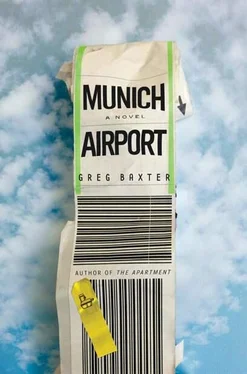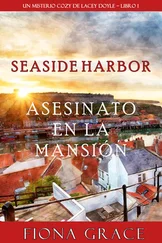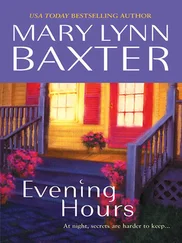I tell my father he needs to prepare for the wheelchair. I guess you’re not going to make it, not quite, on your own two feet, I say. Poor Dad, I say. He momentarily looks up at me, then his head slumps down again.
The man comes by with the wheelchair. He’s actually quite young, quite jovial. He’s tall and thin, with broad, winglike shoulders, spiky black hair, and dark, slanted eyebrows. He looks to me to have come off a movie set, or a casting call for Draculas. Except he wears a high-vis jacket, is in a good mood, and seems possibly mentally disabled, but not profoundly. Anyway, there is something strange, a malady or malfunction, I think, which is revealed in the symptom of his joviality. He asks my father if he can get up on his own and sit in the chair. My father says, Of course. And he gets up and gets in the chair. The man pushing the wheelchair waits for me to get everything together. He even throws my father’s carry-on around his neck. Thank you very much for your help, I say.
It’s my pleasure, he says. What is your reason for visiting Germany?
I say, We wanted to see the Rhineland, we went to see Charlemagne.
Charlemagne? he says.
Karl der Grosse, I say.
Wonderful, he says, sorry about the weather.
On the first night of our travels in the Rhineland, in Walluf, I got drunk with the king of Walluf. His name was Hans. My father and I had dinner in his restaurant. We didn’t know whose restaurant it was at the time, but we had a large, enjoyable dinner, a dinner without any philosophical controversy. Walluf is a splendid little village right on the Rhine. We parked our car outside a hotel overlooking the river and booked ourselves in. There were only two restaurants open in Walluf that night. I would later discover that Hans owned both of them. I would later discover that Hans owned every piece of real estate in Walluf, practically, except for our little hotel, Zum Neuen Schwan. He was disgusted when I told him where we were staying. My father was drunk, and I was drunk, and we’d had a nice dinner, so we decided to go back to the hotel, get some rest, and start fresh in the morning. We walked back to the hotel in the empty darkness, and instead of going straight to bed, we walked to the river, admired it, and admired the view of Mainz across the river. My father made a growling, happy yawn and said, I’m beat! He went to his room and I went to mine. I got undressed, brushed my teeth, hopped into bed with a book. Immediately I realized I didn’t want to go to bed. I wanted to find a smoky bar full of young people, and sit in a corner. I went back to the restaurant and spoke to the bartender. He was young. I asked him if there was anything like a smoky bar where you could drink beer without being sneered at — this was wine country — and he said, Not in Walluf, but there’s a place in Eltville with a pool table. You can smoke and drink beer there. How far is Eltville? I asked. Less than five minutes by taxi, he said. I am almost certain this entire conversation took place in German, which means my memory is just an approximation. Can you call me a taxi? I asked. There was a man sitting in the restaurant lounge — right behind me — who interrupted my conversation with the bartender to say, I’ll go with you. This was Hans. He was sixtysomething. He wore a red plaid shirt and blue jeans, and had a silver flattop. Before we left, I asked the bartender if Hans could be trusted, and he said, He owns everything in this town, he is the richest man in town. I said, He is the king of Walluf? So to speak, said the bartender.
The place in Eltville turned out to be a kebab shop where the taxi drivers of the region gathered and waited for calls. But you could drink beer there. Hans and I got a table by a jukebox. Mostly it was the kind of music you hear at après-ski. God, this place is awful, I said. Hans shrugged. For about half an hour he said nothing. He said nothing until I said I was traveling with my father, and we were staying at the hotel he didn’t own.
I noticed you earlier, he said, because you were with your father. Do you get along with your father?
Reasonably well, I said.
My son despises me, he said.
Are you sure?
I’m sure. He won’t speak to me. He never comes by the restaurant. He is always busy with his friends. His mother , she poisons him against me. After having sat through half an hour of silence with Hans, I was glad to hear him say something, so we spoke about his relationship with his son, and we spoke about my relationship with my father — and since he had been forthcoming, I was a little more forthcoming. I don’t know how much of this conversation I really got, or how much I was able to communicate, because by the end I was absolutely blind drunk, but I know that I definitely, at the end of it all, asked how old his son was. I expected him to say thirty-five. He said, Seven. Then we both laughed loudly for a long time. Then he stopped laughing and became serious, quiet, and dull again.
When we got back to Walluf, I walked around — it was well after midnight — looking for something to eat. Even though I’d had a giant schnitzel for dinner, and a giant potato salad, I was starving. All I could find were some kids standing on a curb who suggested I go to Mainz. So that’s what I did. I got back in the rental car and typed McDonald’s into the GPS. I was drunk. I was so drunk that I went up to my room and got a bottle of wine so I had something to drink on the road. There was a McDonald’s everywhere. Except that it was after one in the morning by then, and they were all, in the immediate vicinity, closed. In order to find one that was open, I drove closer and closer to the center of Mainz, over a magnificent bridge, until I was right in the heart of the city, driving around the streets, enjoying the warm night, having wine and listening to the radio. I found a McDonald’s, finally, and I ordered a feast. The restaurant was closed but the drive-thru was open. I got three burgers, a milk shake, an extra-large fries, and some chicken nuggets, and I even got a salad — for the morning. I was going to drive back to the hotel and eat everything in the room, but I thought it might get cold on the way. So I checked the history on the GPS and punched in my grandmother’s house as a destination. It wasn’t far at all. Three or four kilometers. I parked almost exactly where I had before. I got all the food and the bottle of wine, quietly — though I may have made a lot of noise — then I got out and wandered into the woods across from the house. I sat down somewhere and had my food. I ate it all. I lay back and looked up at the stars.
The woman I used to meet in Bedford Square was married with two children. She worked in the British Museum, she was a professor of archaeology, and she was an expert on the Middle East, Egypt, Turkey, and Greece. She was often flown to these places in a hurry, either to verify something or meet somebody, and she used to send me pictures of her hotel rooms just as she arrived, and then one minute later, to prove how quickly she could annihilate them. She loved bicycles. She loved old bookstores. She was born near Newcastle, but she moved to London at the age of fifteen — she had run away from home. At least this is what she told me. Perhaps it hadn’t been quite like that. Her favorite places to visit were Jerusalem, Damascus, Istanbul, Cairo, and Athens. And I think part of her, for a long time, believed she could exist outside London if she could live in one of those places. But that part of her had to face the reality that the life she wanted in those places did not include her family, and she was not ready to leave her family, though she said she expected she would someday. By the time I met her, however, she had already left London. And she was ready to have an affair — but only with a man who lived in London. She was going slowly insane without the pace, without the stress and swarm of life in London. When she lived there, she said, she would wander into the mayhem of rush hour sometimes just to clear her head. She would drift into Underground stations, just to get swept into the madness. Throw herself into crowded trains, trains with no room left for anybody, when she wasn’t even in a rush. She would go meet somebody in a pub across the city, just to cross the city. In other words, she said, I was like most people who live in London. The way she talked about London reminded me of my first, warm impressions of the city, and while we were together, I began to feel, once again, proud of myself for living there. She had moved with her family to Wargrave, a forgettable little village not far from Reading, where her husband’s parents were, so her husband could focus more time on his career, which was somehow creative. I never really pressed her. I never asked exactly what he did. But I knew she admired him for it, and believed in him, and I knew that deep down she realized I was half the man he was, and that was quite possibly a necessary concession for her, so that if she were ever caught — and she would be caught — she could argue that it hadn’t been his deficiencies as a man or human being that gave her permission to betray him, but her own debasement. She was preparing to hate herself with an intensity and purpose few people ever fathom. She was nearing forty, her children were twelve and ten, and it was time — or so it seemed to me — to hate herself in a way that she had been raised, perhaps, to be hated. There had been enough optimism and frivolity. There had been enough of London, enough bookshops, enough pubs, enough taxis, enough harmless flirtation, enough beauty, enough freneticism, enough of everything. If she were just being selfish, if her affair were merely a matter of selfishness, or boredom, she would have picked another version, surely, of her husband, but one who lived in London. Still, while it was ongoing, she professed to accept it without stress, to enjoy it, to not overthink it, and to allow it to last for as long as it lasted. There was no fear of falling in love, she said. But it was still intense. The difficulty in spending time with you, she once said to me, is watching the way you seem so disappointed with everything. I said, jokingly, I am disappointed with everything.
Читать дальше











